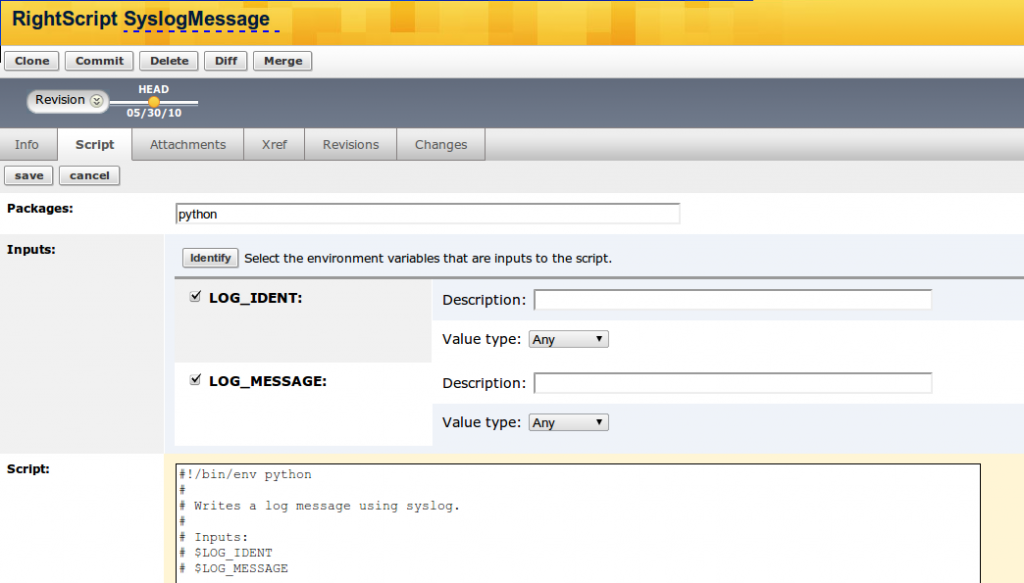RightScale's cloud management platform can be used to deploy and manage solutions on cloud infrastructure with some degree of automation, control, and scaling.
Users create RightScripts to automate actions on their servers. Think of them the same way you would any other script for managing a server. The differences are that they are managed inside RightScale's management platform, with version control, easy reuse, and access to handy environment variables. A RightScript is typically written in Bash, Ruby, or Perl, and has variables that are initialised using input parameters.
Input parameters are essentially environment variables for RightScripts. RightScale's user interface attempts to identify these input parameters by analysing your script. And here is where our problem arises... RightScale only identifies input parameters for uninitialised global variables preceded by the '$' character. That's why RightScripts are typically written in Bash, Ruby, or Perl - so that input parameters will work.
Bash, Ruby, Perl BEGONE!
What if we don't want to use Bash, Ruby, or Perl? What if we think Bash isn't up to the job, Ruby is Python's cross-dressing uncle, and Perl is evil? Could we use Python? What about Groovy? Lua?
Absolutely.
We can use any scripting language we want (except the evil ones). We just need to make RightScale identify the input parameters we want. To do that, we need to trick RightScale into seeing uninitialised global variables that look like Bash, Ruby, or Perl. The simplest way is by 'declaring' the input parameters we want in comments. The input parameters can then be accessed by our RightScript as environment variables.
Specifying Input Parameters
To specify the input parameters our script will require, we place them in comments, preceded by the '$' character. RightScale will identify these as uninitialised global variables and create corresponding input parameters.
For example:
# $WELL_NAMED_VAR_1
# $WELL_NAMED_VAR_2
Writing The RightScript Right
There are two ways we can write our non-Bash, non-Ruby, non-Perl script:
as an attachment to a Bash, Ruby, or Perl RightScript
directly as the RightScript
The second option is better for the following reasons:
we can view our code without needing to open a separate attachment
we get the benefit of RightScale's revision control
we don't have to deal with Bash, Ruby, or Perl if we don't want to
Python Example
Here's an example in Python that has two input parameters, LOGIDENT and LOGMESSAGE:
#!/bin/env python
#
# Writes a log message using syslog.
#
# Inputs:
# $LOG_IDENT
# $LOG_MESSAGE
import os
from syslog import openlog, syslog
openlog(os.environ["LOG_IDENT"])
syslog(os.environ["LOG_MESSAGE"])
In RightScale this looks like:
Simple
All we needed was some comments and '$' characters.
Try it yourself with your favourite scripting language. Break free of Bash, Ruby, or Perl.

